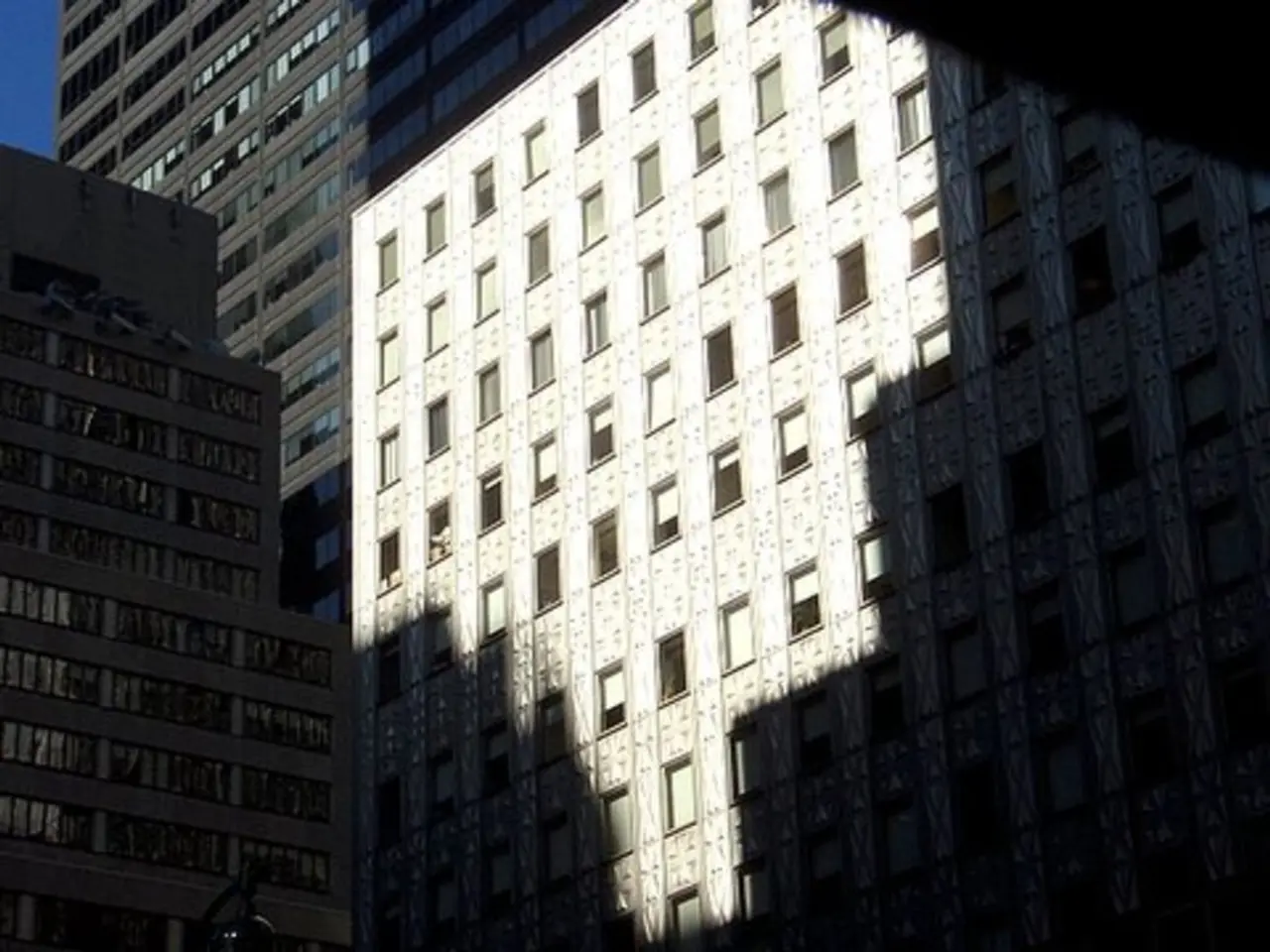The Drais-Halle basement in Stutensee is hailed as a pioneering example of eco-friendly construction.
The Sustainable Drais-Halle: A Model for Green Construction in Stutensee, Baden-Württemberg
The Drais-Halle, located in the heart of Stutensee, is making waves in the construction industry for its exemplary approach to sustainable building. This versatile structure, designed with a focus on multifunctionality, boasts an open foyer, a full kitchen, a stage that can double as a gym, and meeting rooms on the upper floor.
The project's success story began under the leadership of Angelina Kuhnert, who carefully selected each material to perform its specific function. The hall was built as a hybrid structure with wood as the dominant material, with different types of wood used for various functions. This choice not only aligns with the hall's eco-friendly ethos but also contributes to a visual connection with the nearby school and the preserved old tree stock in the "green space."
Mayor Tamara Schönhaar expressed a wish to maximize utilization and bundle many functions in the hall long-term. Schönhaar welcomed Andrea Lindlohr, State Secretary in the Ministry of Spatial Planning and Housing, during a visit to the Drais-Halle. Lindlohr, currently touring sustainable construction sites in Baden-Württemberg, praised the project, noting that public buildings serve the needs of people.
The Drais-Halle was planned and built in a sustainable manner with the help of the N!BBW planning tool. Developed by the Baden-Württemberg state development bank (L-Bank), this digital software supports sustainable construction by enabling detailed assessment and optimization of energy performance, environmental impacts, and cost-efficiency during the planning phase. Through the N!BBW tool, planners of the Drais-Halle were able to simulate scenarios, evaluate sustainable options, and ensure that the building meets high standards of ecological and economic sustainability.
Schönhaar, along with city administration representatives, local and district councils, and members of the state parliament, welcomed Lindlohr. Christoph Dietz, managing director of Kubus 360, also praised the trusting cooperation with the city of Stutensee during the construction of the Drais-Halle.
Lindlohr emphasized that flexibility, mixed use, smart planning, and system comparison are important considerations in sustainable construction. She also highlighted the challenges faced during the planning and construction phases, but emphasized that changing needs must also be taken into account in sustainable construction.
The Drais-Halle, constructed without a basement and with technology not designed for maximum capacity, stands as a testament to the project's commitment to sustainability. The hall's versatile design and eco-friendly materials make it a model for green construction in the region. The ministry's website lists the Drais-Halle as a good example of sustainable construction, further solidifying its status as a beacon for environmentally conscious design and building practices.
- The Drais-Halle's green design extends beyond construction into its lifestyle and environmental approach, as it encourages sustainable living through actively minimizing energy consumption and promoting eco-friendly practices within its multifunctional space.
- In line with the project's emphasis on sustainable living, the Drais-Halle's home-and-garden area features indigenous flora, helping to support biodiversity and reduce water consumption.
- As more communities embrace environmentally-conscious development, the Drais-Halle's success in sustainable construction offers valuable insights for the science and practice of environmental-science, demonstrating how architecture can contribute positively to the planet's future, thereby shaping a more sustainable lifestyle for all.



